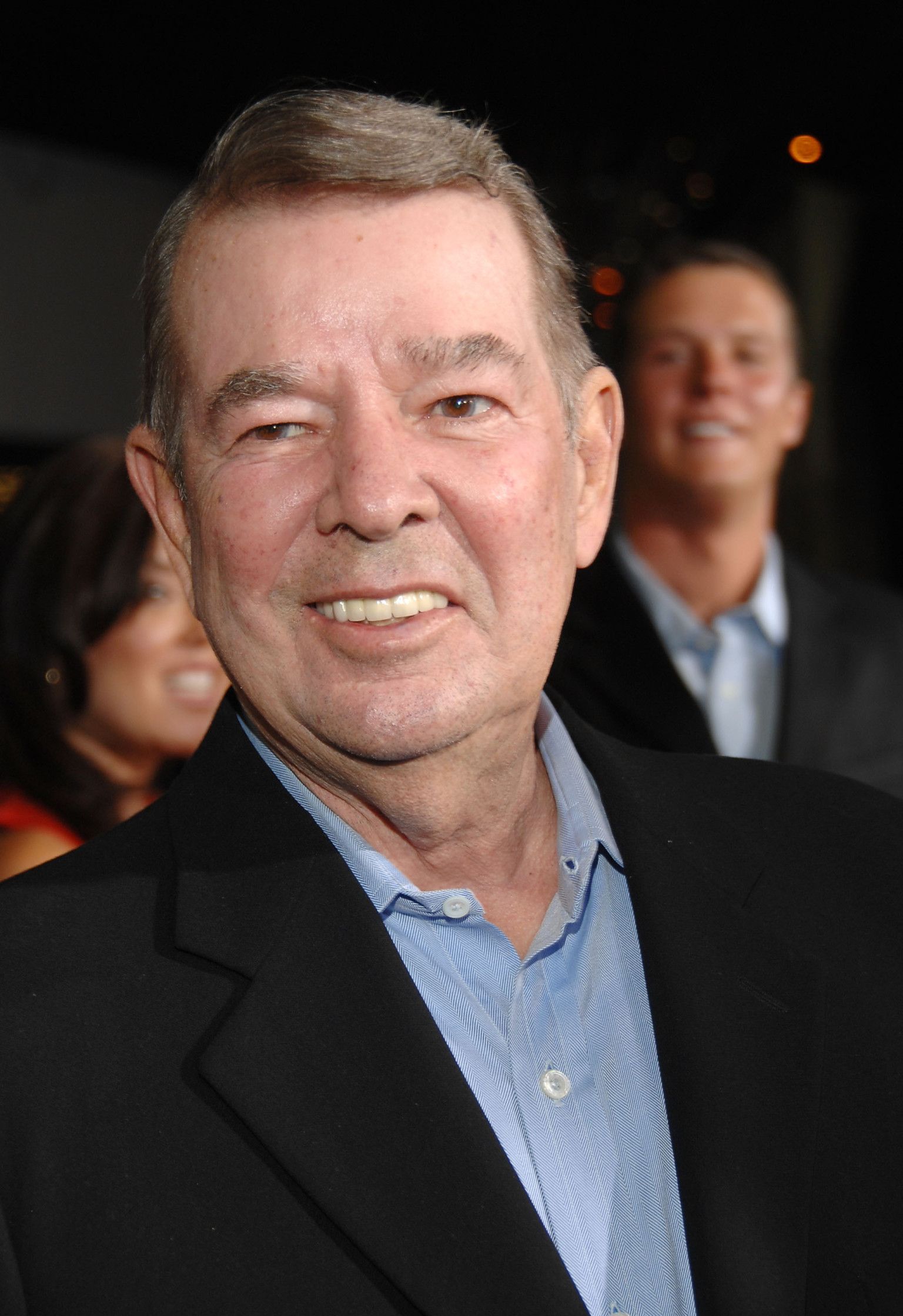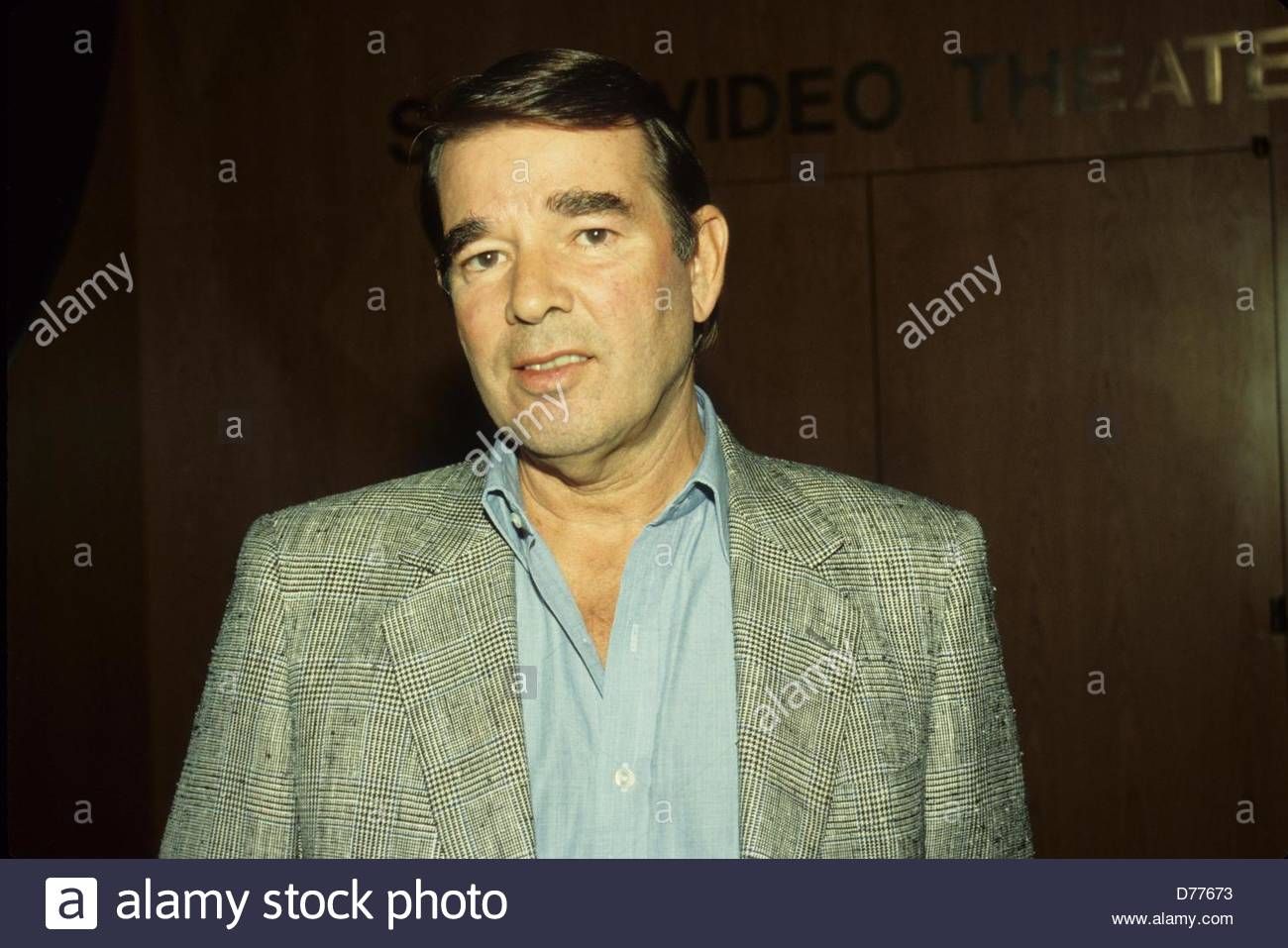Alan Ladd Jr - A Hollywood Visionary's Legacy
You know, there are some folks behind the scenes in Hollywood whose quiet decisions shape the movies we all come to cherish, and Alan Ladd Jr. was very much one of those people. He was a person who truly saw potential in stories others might have overlooked, a guiding presence for many successful films. When you think about big pictures like "Star Wars," for instance, or even "Braveheart," it's his belief and his backing that helped bring them to the big screen for everyone to see.
He had a knack, you see, for spotting something special, a kind of intuition that allowed him to champion projects that, in some respects, seemed a bit out there at the time. This was a man who helped make cinematic history, a figure whose choices had a really wide-reaching effect on what we watch and what stories become part of our collective memory. His influence stretched across different studios and many years, leaving a lasting mark on how films get made and what kind of films get made, too it's almost a quiet legend in itself.
So, while his name might not be as familiar as the stars on the screen, his work truly sits at the very heart of some of the most beloved stories in film. From his early days to his final contributions, his path was one of continuous dedication to the art of moviemaking. He was, as a matter of fact, a key player in shaping the entertainment landscape, someone who understood the power of a good story and how to get it told.
- Grab My Balls
- Taliya Gustavo Leaked
- Taylor Frankie Paul High School
- 18 If%C5%9Fa Sotwe
- Elon Musk Baby Fur
Table of Contents
- The Life Story of Alan Ladd Jr.
- Personal Details and Career Highlights
- What Made Alan Ladd Jr. Such a Unique Figure in Film?
- How Did Alan Ladd Jr. Champion Unconventional Ideas?
- What Was The Ladd Company's Impact on Cinema?
- How Did Alan Ladd Jr.'s Work at Major Studios Shape Movies?
- Remembering Alan Ladd Jr.
The Life Story of Alan Ladd Jr.
Alan Ladd Jr.'s story in the movie business is, well, quite a long and interesting one, stretching across many decades and many different roles. He came from a family that already had ties to Hollywood, being the son of the well-known actor Alan Ladd. This family connection, you know, might have given him a unique perspective on the film world right from the start, seeing it from both the creative side and, later, the business side. His journey began not as a producer or a studio head, but as someone who helped connect talent with opportunities.
Back in 1963, he started out as a motion picture talent agent at a place called Creative Management Associates. This was where he really got to work with some big names, people like Judy Garland, Warren Beatty, and Robert Redford, too it's almost a who's who of that time. This early experience, you see, gave him a very close look at how the creative side of the business operated, how actors worked, and what made a performer truly stand out. It was a good way to learn the ropes, getting a feel for the personalities and the demands of the movie industry from a very hands-on perspective, which is, like, pretty important for what he'd do later.
After his time as an agent, he moved into the executive side of things, taking on big responsibilities. He became the president of 20th Century Fox Pictures during the 1970s, a period when the film industry was, in some respects, going through some interesting shifts. It was during his time there that he made some truly pivotal decisions, choices that would change the course of cinema. For instance, he gave the go-ahead for a little film called "Star Wars," which, as a matter of fact, was a rather unconventional idea at the time, and also "Alien," another picture that really left its mark. These decisions alone, you could say, firmly secured his place in the history books of Hollywood, showing his foresight and his willingness to take a chance on something new.
Then, he went on to establish his own company, The Ladd Company. This was a place where he could, in a way, bring his own vision to life, backing films that he truly believed in. This venture, you know, became responsible for supporting many hit movies, showing his continued ability to pick winners. His career also took him to MGM/UA, where he continued his work as a studio executive, contributing to even more productions. It's clear that he had a continuous presence at the very top levels of the movie business, always working to bring compelling stories to the public.
One of the crowning achievements in his producing career was, of course, the Oscar he received for "Braveheart" in 1995. This award was a significant moment, a public acknowledgment of his dedication and his success in helping to create a film that resonated with so many people. It really showed, in some respects, the impact he had, not just in getting films made, but in getting films made that were truly recognized for their quality and their popular appeal. His life in film came to an end at the age of 84, when he passed away in Los Angeles on March 2, 2022. His long career left a substantial and lasting mark on the entertainment world, a legacy that continues to be felt in the movies we watch today.
Personal Details and Career Highlights
Here's a quick look at some personal details and key moments from the career of Alan Ladd Jr., giving a bit of a snapshot of his life and work:
| Detail | Information |
|---|---|
| Full Name | Alan Ladd Jr. |
| Born | October 22, 1937 |
| Died | March 2, 2022 |
| Age at Death | 84 years old |
| Place of Death | Los Angeles |
| Occupation | Film Executive, Producer, Talent Agent |
| Parent | Alan Ladd (actor) |
| Key Roles | President of 20th Century Fox Pictures, Founder of The Ladd Company, Executive at MGM/UA |
| Notable Films Backed | "Star Wars," "Alien," "Blade Runner," "Braveheart" |
| Awards | Oscar for "Braveheart" (1995) |
What Made Alan Ladd Jr. Such a Unique Figure in Film?
So, what was it, you might wonder, that truly set Alan Ladd Jr. apart in the busy world of Hollywood? Well, for one thing, he had a very clear vision, a way of seeing the potential in stories and filmmakers that others just didn't quite grasp. He wasn't someone who simply followed the crowd; instead, he was willing to take a chance on ideas that seemed, well, a little bit different, even risky. This willingness to back something new, that, is that really what made him stand out. He wasn't afraid to put his reputation on the line for a project he believed in, and that's a quality that's not always easy to find in the high-stakes movie business.
He was, in some respects, a kind of guiding hand, someone who could see the bigger picture and help shape a project from an early idea into a full-fledged movie. His ability to spot raw talent, both in front of and behind the camera, was pretty remarkable. You know, he had a knack for understanding what might connect with an audience, even if the concept seemed a little unusual at first glance. This intuition, combined with his experience across different parts of the industry, from agent to executive, gave him a very rounded perspective. He understood the creative process, the financial side, and the audience's desires, which is, like, a rather powerful combination for anyone working in film.
Furthermore, his personal touch and his reputation for being a fair and supportive figure also played a big part. He was, by all accounts, someone who was well-liked and respected within the industry, often called one of Hollywood's "favorite sons." This good standing, you see, probably helped him get projects off the ground and maintain good relationships with the many people involved in making movies. He wasn't just a business person; he was someone who truly loved film and understood the people who made it, which is, as a matter of fact, a really important aspect of his unique place in movie history.
How Did Alan Ladd Jr. Champion Unconventional Ideas?
It's interesting to consider how Alan Ladd Jr. managed to get behind ideas that, at the time, seemed a bit out of the ordinary, especially when you think about the huge success they later became. Take "Star Wars," for example. When George Lucas first brought his vision to 20th Century Fox, it was, in some respects, a very different kind of movie from what studios were typically making. It wasn't a sequel, it wasn't based on a popular book, and it had a rather unique sci-fi fantasy blend that was untested on such a grand scale. So, why did Alan Ladd Jr. decide to back it?
Well, he had a belief in the young director, George Lucas, and a sense that there was something special in the story, even if it didn't fit the usual mold. He saw past the initial strangeness of the concept and recognized the potential for something truly big, something that could capture the imagination of a wide audience. This wasn't just a business decision; it was, in a way, a creative leap of faith. He gave Lucas the freedom and the resources to make his unconventional vision a reality, which is, like, a pretty big deal when you're talking about a movie that would change cinema forever. Without his willingness to take that chance, the whole "Star Wars" story as we know it might not even exist, which is, as a matter of fact, quite a thought.
He also showed this same kind of support for other projects that pushed boundaries, like "Blade Runner." That film, too it's almost a classic now, was a very different kind of science fiction story, visually striking and conceptually deep, but not necessarily an obvious box office hit. Yet, Alan Ladd Jr. saw its artistic merit and its potential to be something lasting. His approach wasn't just about what was safe or what had worked before; it was about what could be new, what could truly connect with people in a fresh way. He had a genuine eye for innovation and the courage to act on it, allowing these unique stories to find their way to the screen, which is, you know, a very important part of his lasting legacy.
What Was The Ladd Company's Impact on Cinema?
When Alan Ladd Jr. started The Ladd Company, it was, in some respects, his chance to really put his own stamp on the movie business, to create a space where he could make the kinds of films he truly believed in. This independent venture became a significant player, backing a number of pictures that went on to become quite well-known and, you know, really beloved. It was here that he continued to show his skill for picking projects with both artistic merit and popular appeal.
One of the most famous films to come out of The Ladd Company was "Braveheart." This picture, which eventually earned him an Oscar, showed his continued commitment to powerful storytelling. It wasn't just about big action; it was about a compelling narrative and strong characters, too it's almost a perfect example of his taste. The company also had a hand in other notable films, further solidifying its reputation for quality. This period allowed him to operate with a bit more creative freedom, perhaps, than he might have had at a larger studio, giving him the chance to truly nurture projects from the ground up.
The impact of The Ladd Company, then, was really about adding to the diversity of films available to audiences. It represented a vision that valued strong narratives and unique voices, contributing significantly to the cinematic landscape. It showed that an independent outfit, guided by someone with a clear sense of what makes a good movie, could produce work that stood alongside the biggest studio productions, which is, as a matter of fact, a pretty impressive achievement for any film company.
How Did Alan Ladd Jr.'s Work at Major Studios Shape Movies?
Alan Ladd Jr.'s time at big studios like 20th Century Fox and MGM/UA was, well, incredibly important in shaping the kinds of movies that got made during those years. As president of 20th Century Fox Pictures in the 1970s, he held a position where his decisions had a really direct and immediate effect on what films would reach audiences. It was in this role that he made some of his most famous calls, giving the green light to projects that, as a matter of fact, might have seemed a bit risky to others, but which he saw as having huge potential.
His decision to back "Star Wars" and "Alien" at Fox, for instance, wasn't just about approving a budget; it was about believing in a vision that was, in some respects, truly groundbreaking. These films didn't just become popular; they redefined genres and set new standards for special effects and storytelling. His support meant that these ambitious projects received the necessary resources and backing to be fully realized, which is, like, a pretty big deal. He had to convince others, too, that these were worthwhile investments, showing his persuasive skills and his deep conviction.
Later, his work at MGM/UA continued this pattern of executive influence. In these large studio environments, a person in his position has a tremendous amount of sway over what gets developed, what gets funded, and what ultimately makes it to the screen. He was part of the machinery that brought many stories to life, helping to steer the direction of a major Hollywood player. His contributions across these different studio homes demonstrate a consistent dedication to film production at the highest levels, always working to ensure that interesting and impactful stories found their way to the public, which is, you know, a very important part of his long career.
Remembering Alan Ladd Jr.
When we look back at Alan Ladd Jr.'s life and his time in the movie business, it's clear that he left a truly lasting mark. His passing at 84 years old in Los Angeles on March 2, 2022, brought forth many tributes from across the industry, all recognizing his significant contributions. People remembered him not just for the big hits he backed, but also for the kind of person he was – someone who was widely considered one of Hollywood's favorite sons, a respected and admired figure.
His legacy, you see, isn't just about the box office numbers or the awards; it's about the stories he helped tell, the careers he helped build, and the way he shaped the very fabric of popular culture. The fact that he championed a young director like George Lucas and his rather unconventional vision for "Star Wars" means that entire franchises and generations of filmmakers and fans owe a debt to his foresight. This kind of belief in creative talent, that, is that really what made him special.
He was, in some respects, the man behind the movies, the quiet force who made things happen. Tributes poured in from many, including those who worked with him, like Ben Affleck and Mel Brooks, and people who understood his impact, like Elizabeth M. His story is, as a matter of fact, the untold story of a movie mogul who truly saw the potential in bold ideas and had the courage to bring them to life. His contributions are a reminder that the magic of cinema often begins with the belief of one person who dares to say "yes" to something new, which is, like, a pretty powerful idea when you think about it.
Alan Ladd Jr.'s career, from talent agent to independent producer and studio head, was a continuous journey of supporting and shaping the film world. He was a visionary studio head who consistently backed compelling films, leaving an indelible mark on cinematic history. His biography, the tributes, and his enduring legacy are well worth exploring for anyone interested in the real forces behind the silver screen.
- Where Is Kristina Khorram
- Uncut Maza Series
- How Many Children Did Elizabeth Taylor Have
- Manuela Cadavid Onlyfans Leaked
- Courtney Wilson

Pictures of Alan Ladd Jr.

Pictures of Alan Ladd Jr.

Pictures of Alan Ladd Jr.